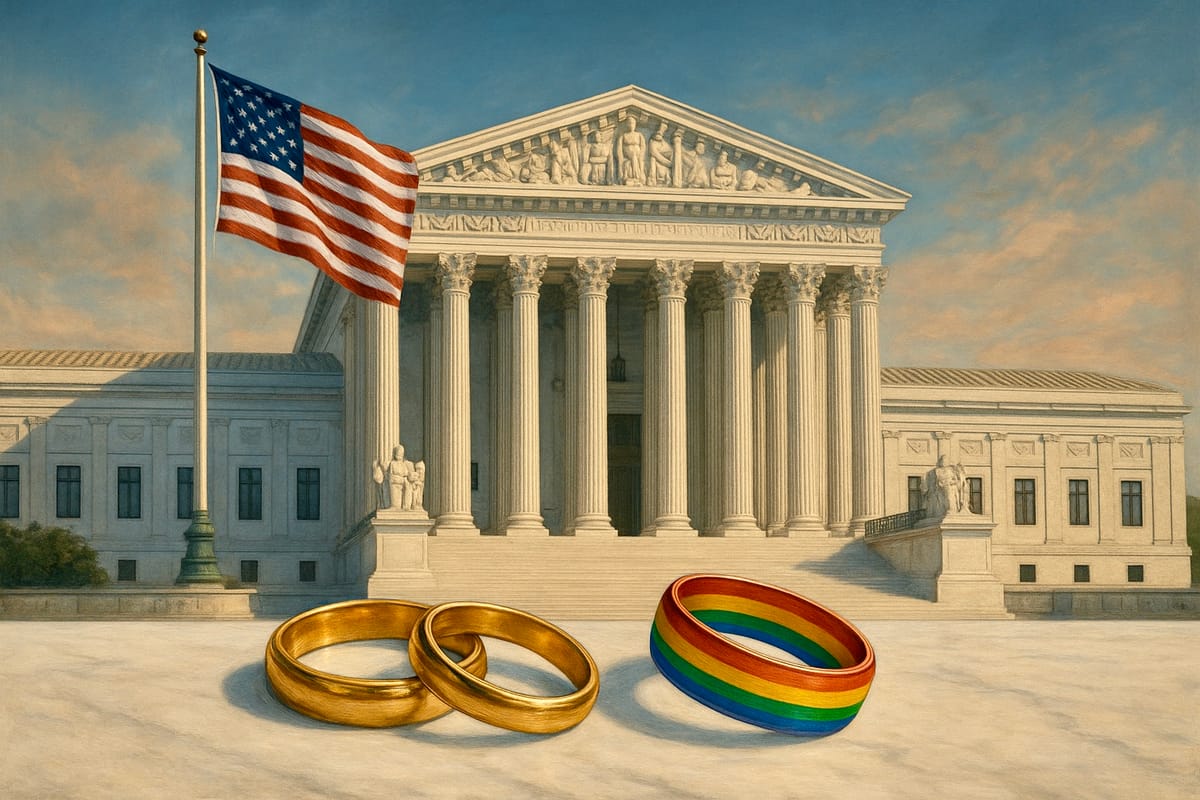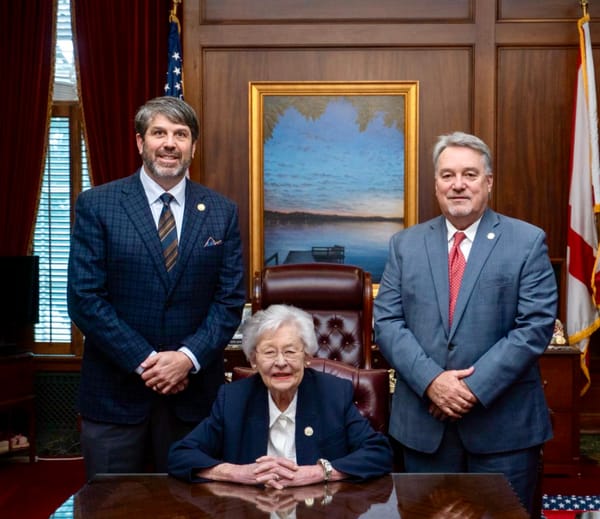SCOTUS Declines Case Targeting Same-Sex Marriage Ruling
The Supreme Court rejected Kim Davis’ appeal, leaving same-sex marriage intact but reigniting debate over future challenges to marriage rights

On Monday, the Supreme Court declined to take up an appeal from former Kentucky clerk Kim Davis that sought to undo the ruling that made same-sex marriage legal across the United States. The order leaves in place a lower-Court judgment that Davis pay roughly $360,000 in damages and attorneys’ fees to a couple she refused to marry.
Davis’ petition had asked the Court, among other things, to revisit aspects of the 2015 Obergefell v. Hodges decision. But the case the Justices declined was built mainly around tort and First Amendment issues—whether a public official can claim a free-exercise defense to civil damages for refusing to follow a Court order—not a clean vehicle for overturning Obergefell itself. That nuance is why many Court watchers said the denial was not the same thing as a full and final endorsement of Obergefell.
Conservative legal writers and groups took different tacks in the hours after the order. Some, including commentators at The Federalist, argued the press overstated the day’s meaning: the Davis docket entry was not the sort of direct, square challenge to Obergefell that would normally lead the justices to re-examine a major precedent. Those writers pointed out that Davis’ suit centered on damages and qualified immunity, and so a denial by the Court did not close the door on other, more direct attacks to the 2015 ruling.
At the same time, Justice Clarence Thomas has been the lone justice on the current Court to urge erasing Obergefell. In a concurring opinion after the Court’s 2022 Dobbs decision (overturned Roe v Wade), Thomas wrote that the Justices should “reconsider all of this Court’s substantive due process precedents, including Griswold (contraceptive use by married couples), Lawrence (consensual sex between couples of the same sex), and Obergefell (same-sex marriage),” calling such precedents “demonstrably erroneous” and saying the Court has a duty to “correct the error.” That line of thought makes clear why some legal observers fear that one ruling could lead to others being revisited.
If the Court were to take Thomas at his word and reexamine Obergefell on grounds of substantive due process error, the legal ripple effects could be significant. Obergefell’s reasoning and the right it recognized drew on earlier Fourteenth Amendment cases about marriage and liberty. One of those is Loving v. Virginia, the 1967 decision that struck down State bans on interracial marriage by holding such bans unconstitutional under the Due Process and Equal Protection Clauses. Loving has been cited by Courts as a key precedent in later marriage cases, which is why legal scholars warn that a move to undo Obergefell could force Courts to ask whether Loving and other marriage rights precedents still stand.
The practical effect of breaking that doctrinal chain of legal thought is not merely academic. Loving protected an intimate liberty that, before 1967, many States made criminal. Overturning a later case that relied on Loving could prompt hard questions about the stability of other marriage rights recognized under the Fourteenth Amendment. Those concerns are what make many observers cautious about any push to relitigate Obergefell.
That fear is part of the tug of war playing out in the public square. Supporters of Davis framed her case as a fight for conscience and religious liberty; opponents said her refusal to follow the law cost a couple their rights and left them with real harms that a jury properly remedied. The Supreme Court’s decision to pass on the petition settles none of those larger fights; it simply means the high Court will not use Davis’ appeal as the vehicle to revisit Obergefell—at least for now.
The difference between the news fact—that the Court refused to take this petition—and the broader legal debate about whether and when Obergefell might be revisited are critical to understanding the ongoing back-and-forth on the Court‘s action. Some outlets ran headlines that framed the denial as a clean win for same-sex marriage; other outlets and commentators stressed the narrow, procedural nature of the case and warned that the underlying fight over substantive due process remains live. Both opinions must be considered to fully grasp what actually happened on the Court’s order list and what may yet come.
Monday’s order keeps the Davis judgment in place and does not itself change Obergefell. But, the legal currents Justice Thomas has urged the Court to explore—a reexamination of substantive due process precedents—could, if the Court ever chose to follow them, raise questions about older marriage cases such as Loving v. Virginia. That is why this quiet denial on the Court’s list has kept both sides watching closely.
It is worth noting that, prior to the Loving decision in 1967, Alabama had a long-standing statutory and constitutional provision that barred marriages between Whites and Blacks (or descendants of Blacks). The 1901 Alabama Constitution included Article IV, Section 102, which stated: “The legislature shall never pass any law to authorize or legalize any marriage between any White person and a negro, or descendant of a negro.”
The State’s penal code also provided criminal sanctions for interracial “marriage, adultery or fornication” between a White person and a Black person or descendant of a Black person: “If any White person and any negro, or the descendant of any negro intermarry, or live in adultery or fornication with each other, each of them shall, on conviction, be imprisoned in the penitentiary for not less than two nor more than seven years.” This statute was upheld by the U.S. Supreme Court in Pace v. Alabama (1883), in which the Court held that Alabama’s anti-miscegenation law did not violate the Equal Protection Clause because it penalized both partners equally.
Although the 1967 Loving decision declared bans like Alabama’s unconstitutional under the Fourteenth Amendment, the formal repeal of the Alabama ban would not occur for decades. The statute was rendered unenforceable in 1967, but the constitutional prohibition remained on the books until voters removed it in 2000.
One final note: Justice Thomas would be ethically compelled to recuse himself from any reconsideration of Loving, because he is in an interracial marriage. If reversing Obergefell would make Loving vulnerable to a reversal on similar grounds, should he not recuse himself from that case, as well?




